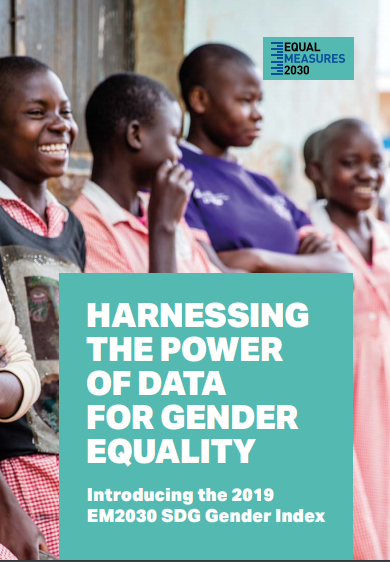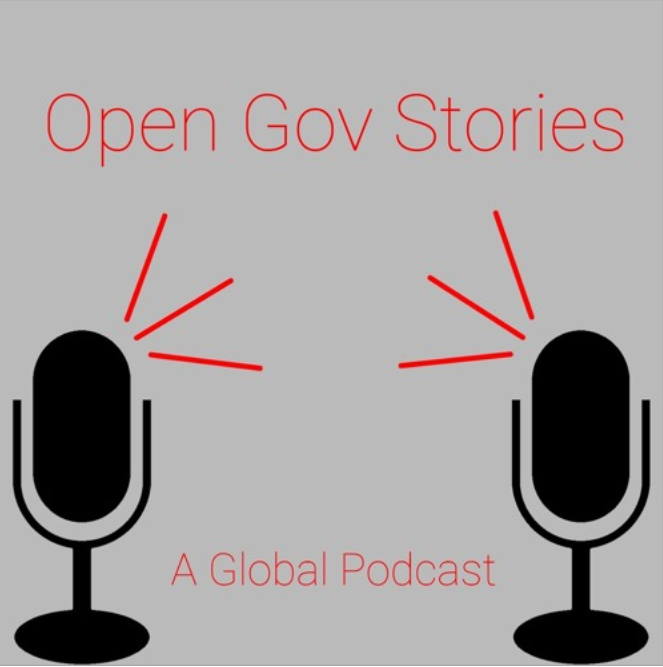Highlights:
- Communiqué overload
- Evolution more than revolution
- Taxing issues
- Don’t be faked out
- An excuse to learn less
- TAI Spotlight: Taxation case note and trust and transparency
In case you missed it…
Communiqué overload
 Photo: Photo by Crystal710 on Pixabay
Photo: Photo by Crystal710 on Pixabay
This past weekend saw world leaders gather in Osaka, Japan for the G20 summit. While much of the press coverage focused on the debates around the death of liberalism, there were no shortage of meetings, principles development and norm-setting on the sidelines.
We’ll start with corruption. Transparency International’s M Emilia Berazategui outlined her hopes for the summit, not least a call for “strong and concrete anti-corruption measures that would signal that leaders are finally starting to take citizens’ concerns seriously.” What did come out? More language on “playing a leading role” in the fight against corruption and a recommitment to implement the G20 Anti-Corruption Action Plan 2019-2021. Radical enough? Maybe G20 Sherpas should have first looked for inspiration in the Oslo Statement on Corruption involving vast quantities of assets compiled by over 140 experts from more than 50 countries. Yet the leaders did welcome the High-Level Principles for Effective Protection of Whistleblowers, and more asks of international organizations to explore the linkages between corruption and gender and to scope international cooperation re serious economic offenders and return of stolen assets. For the latter the multilaterals might want to read the new Transnational Security Report that shines a light on examples of illicit cross-border flows which endanger global security.
Japanese hospitality clearly had a soothing effect, as the G20 leaders also endorsed a host of international efforts from the newly agreed G20 AI Principles through to the Institute of International Finance on the Voluntary Principles for Debt Transparency (featured in recent Weeklies) and ongoing efforts on tax transparency and tax certainty. Worth scanning the full declaration.
Returning to the corruption theme, Diana Pérez Córdova makes the case for social movements and journalists collaborating to take on major corruption as seen around the (now bankruptcy seeking) Odebrecht scandal in Latin America. Narayan Adhikari and Suresh Chand make a case for making accountability real in fighting corruption be that pushing for citizen engagement mechanisms that allow for public oversight of local service delivery and political decision-making, building strong civic and media coalitions, or using the likes of the Open Government Partnership to ensure commitments to more open and transparent governments at all levels. (Keen to learn more of OGP’s policy areas? Don’t forget the thematic fact sheets of progress released in the run-up to the recent Summit.)
Elsewhere, the UK anti-money laundering system is failing according to the UK government’s own law reform think tank that calls the regulatory regime remains overly confusing, resulting in poor quality information for law enforcement. Switzerland is set to return $133 million to Uzbekistan that was seized from a relative of Gulnara Karimova, daughter of the country’s former president Islam Karimov, who is accused of setting up bank accounts to hide her identity.
Long read

Harnessing the Power of Data for Gender Equality: Introducing the 2019 EM 2030 SDG Gender Index by Equal Measures 2030
The report unveils the most comprehensive tool for measuring the state of gender equality in 129 countries across five regions. The index is a snapshot of where the world stands versus the vision of gender equality set forth by the 2030 Agenda.
Evolution more than revolution
Reflecting on the recent Extractive Industries Transparency Initiative (EITI) Conference, Elisa Peter found some encouraging signs of shifts to accountability, but still a long way to go if we want to demonstrate how EITI helps improve people’s live in resource-rich countries today. Elisa mentions shifts to contract disclosure as a positive sign of EITI’s evolution and Marie Gay Alessandra Ordones picks up on this, suggesting such disclosure has become a global norm, reflected in creation of a new network of governments on the topic. The win of requiring contract disclosure under the latest EITI standard is undoubtedly an important shift from a decade-plus of hard advocacy and analysis, though more to be done on accessibility and enshrining publication in law.
Sticking with EITI evolutions and turning to mainstreaming of data generation, Development Gateway is working with the Nigerian government to automate data collection tools for the EITI, where Nigeria currently uses manual excel spreadsheets. Elsewhere, congrats to Natural Resource Governance Institute whose online resource governance course has been awarded top e-Learning program by the International E-Learning Association.
We’ve covered recent court cases that expose the World Bank Group to lawsuits from communities affected by projects, but what of existing accountability mechanisms at the World Bank and IFC? Are they sufficient to ensure responsible financing of mining activities? Heidi Vella argues that Compliance Advisor Ombudsman’s effectiveness in dispute remediation and enforcing accountability has often been called into question.
Speaking of funding extractives, is Mozambique’s $20bn gas project funded by the US really going to translate into benefits for citizens? Ed Stoddard argues that the project could help double Mozambique’s GDP in theory, but could also have dire consequences. Given Mozambique’s current reliance on coal production, pair it with a new report that revealed that G20 governments have more than doubled the amount of financial support they provide to coal power plants in just three years. Surely climate commitments vs reality is an area ripe for more transparency and accountability.
Taxing issues
TAI joins those at the Addis Tax Initiative (ATI) conference starting today. Ahead – three days of examining efforts to help countries boost their domestic revenues, although in advance several NGO and think tank luminaries offer a timely reminder that it is not just how much money is raised but who pays it. Raising revenues without an eye on effects on equality can greatly undermine developmental benefits.
To get a full sense of where tax burdens fall, it helps to know not just who is paying but where they are from. What if every country had ready analysis of which parts of the country contributed what taxes compared to what they get back via government spending? The visual for the US, courtesy of the Rockefeller Institute of Government, could be a model for others if the data is there. EY Global reminds us how balancing tax policy and revenues remains a challenge and emits answers that might not be clear. But they suggest some three key action points: monitor developments; model the potential impact of tax reforms that might affect any aspect of company tax strategy; communicate and engage with local and global policymakers about the potential impact of tax policy changes. Finally, implementation of Indonesia’s new tax compliance system, aimed to raise tax revenue, was delayed because of not enough tax revenue to finance it.
At the ATI, the focus is on donor support for revenue mobilization and we anticipate new numbers on funding contributions for big government funders. In the meantime, TAI has updated our tax minisite that includes details of funding to tax-related grantees from TAI core members. You can also check out our review of TAI donor collaboration on tax issues to date (see TAI Spotlight below for more).
Over in London, the theme of tax transparency is more prominent at the Tax Justice Network conference. Attendees may be interested in Bhupendra Kothari and Dhruba Saha’s exploration of the links between tax transparency and tax certainty and their call for cross border pricing policies of multi-national enterprises to be streamlined. For related reading see the big claims in the OECD’s new report including that voluntary disclosure of offshore accounts, financial assets, and income in the run-up to full implementation of the automatic exchange of information initiative resulted in more than EUR95bn in additional revenue for OECD and G20 countries from 2009 to 2019. Meanwhile, the OECD is grappling with its review of digital tax – for a reminder of business mobilization to safeguard low taxes, see the push from the Bangladesh Association of Software and Information Services for long-term tax exemptions with a mix of threat and incentive.
Don’t be faked out
Think you’re a pro at spotting fake images online? Then you must have good digital media literacy as argued by Mona Kasra from Nieman Lab. Enhance your skills more from Washington Post’s fact checker’s guide to manipulated video.
How to manage broader data risks? Luke Stark and Anna Lauren Hoffmann point to the importance of the words we use to describe data can teach data scientists how to be more socially responsible. Might we head off problems down the road if tech actually listened to researchers?
Astra Bonini lists five action areas for using data to “leave no one behind” – strengthening data collection efforts, applying data to make inequalities and deprivations visible, expanding access to data and information, ensuring the protection of privacy and upholding human rights, and using evidence to inform decisions. Meanwhile, Karen Hao applauds the fact that Africa has growing influence in AI research with the technology applied to challenges like food security and health care – a positive step for her in a field typically lacking diversity and perceived as detached from real-world challenges.
Can countries meet the Sustainable Development Goals (SDGs) without defending civil society and human rights? Not according to Lysa John who argues that governments, “must be constantly reminded that civic action and participation is not an enemy to progress. Rather, they are vital to meeting the 2030 Agenda.” Maybe Honduras government should heed Lysa’s advise that civic action is not the enemy. What is the future for Turkey’s civil society? Is the election of opposition leader Ekrem İmamoğlu, in the re-run of Istanbul’s municipal election, a spark for more defense of freedoms?
An excuse to learn less
Thinking to improve how your team collaborates? Laszlo Bock advises that we learn best when we learn less. He offers four tips to get us started. Break lessons down into small, digestible pieces, and encourage employees to practice them over. Make feedback a habit. Provide regular reminders, and only invest in what works.
What external factors can enable collaboration? Given TAI’s role, we are interested in a new collection of cases to show how philanthropy networks and support organizations are promoting a more enabling environment for philanthropy and civil society. Learn more about these successful experiences from eight organizations in different countries.
Want money? Check out 100 influencers in Philanthropy in 2019. Want ideas? Check out the Open Think Tank Directory. Having problems with your field experiment analysis? Check out the Evidence in Governance and Politics’ Research Design Tool Analysis that analyzes experiments where the outcome variable is dichotomous.
TAI spotlight
Taxation and tax governance: collaboration case note | TAI
This case note describes TAI efforts to foster collaboration on improving fairness and transparency in the international tax system.
Civic space collaboration case note | TAI
We describe our efforts to better understand the challenges faced by grantee organizations due to closing civic space suggest solutions in responding to different forms of restrictions.
Taxes, taxes, taxes | TAI
Check out our session on CSO’s role in boosting domestic resource mobilization at the Addis Tax Initiative Conference and our updated tax minisite.
On trust and transparency | Luminate
Simply secure shares outcomes from a research on Luminate’s feedback gathering process, using a human-centered research approach to hear from their investees.
*Don’t forget to check out our newly launched Open Gov Stories Global Podcast Series with Open Gov Hub. It goes behind the scenes to explore why social changemakers do the work they do. Listen to more than 20 stories from people in the TAP field and add yours!

Calls: Proposals, papers, speakers and course invites
- Request for Expressions of Interest: Country-Level Research on Public Participation Commitments in OGP: July 8
- Re-using Open Contracting Tools: July 10
- Call for Applications: 100&Change: July 16
- Consultancy Opportunity: Utilizing Beneficial Ownership Information for Public Accountability by OSF: July 19
- Request for Proposals: Women’s Political Participation in Hybrid Regimes: August 9
- Request for Proposals: Building Evidence on Citizen Engagement and Government Accountability – August 31
- Reagan-Fascell Democracy Fellows Program – October 1
On the calendar
- ATI/ITC Tax and Development Conference 2019 – July 2 -4, 2019 (Berlin, Germany)
- Creating a Resilient and Inclusive Democracy in India – July 10, 2019 (Washington, DC)
- IDS Evidence into Policy and Practice Series: How can NGOs and civil society organisations enhance their production and use of research? – July 25, 2019 (Brighton, UK)
- IDEAS 2019 Global Assembly and Third International Conference on Evaluating Environment and Development – September 30 – October 4, 2019 (Prague, Czech Republic)
- Global Symposium (COPGS) on Citizenship, Governance, and Accountability in Health – October 15-18, 2019 (New Delhi, India)
- What Works Global Summit 2019: Building Evidence – October 16 – 18, 2019 (Mexico City, Mexico)
- Global Perspectives 2019 – October 29 – November 1, 2019 (Addis Ababa, Ethiopia)
- The Story Conference – November 27-29, 2019 (Melbourne, Australia)


